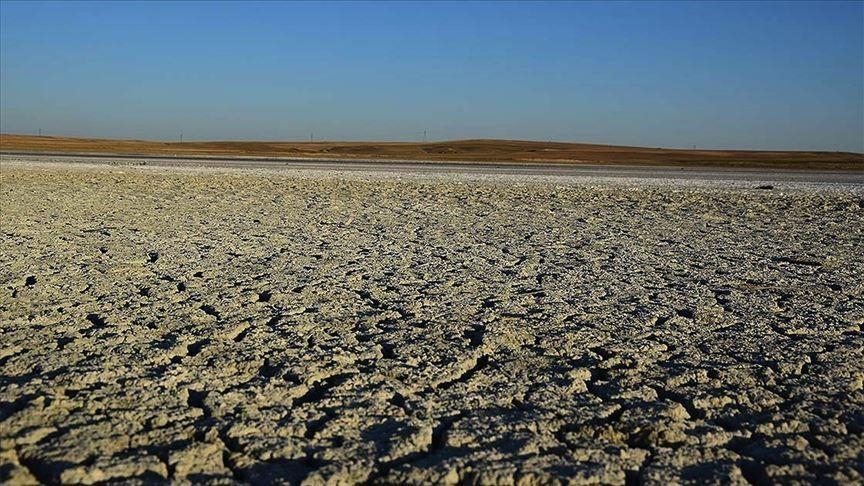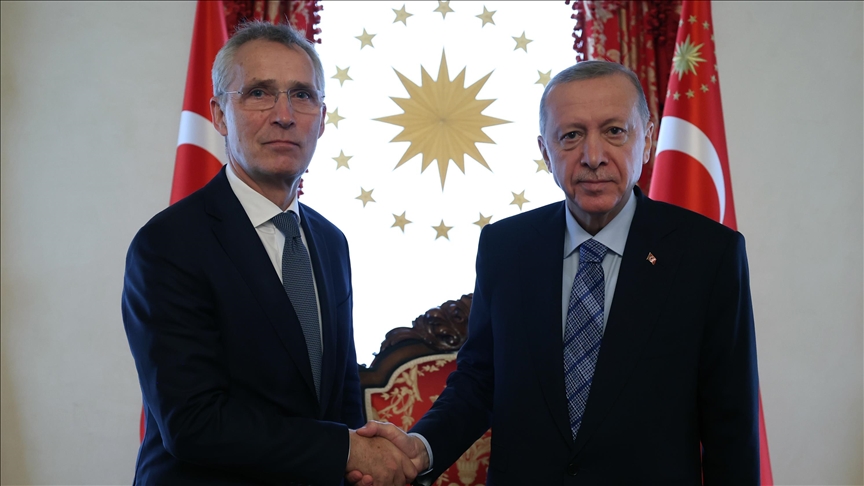UN climate panel official urges rapid reduction in fossil fuel use
ISTANBUL
An official of the Intergovernmental Panel on Climate Change (IPCC) – a UN body responsible for advancing knowledge on human-induced climate change – urged rapid actions to end or minimize the usage of fossil fuels by the end of the decade.
Speaking to Anadolu Agency, Joyashree Roy, one of the authors of the IPCC’s Sixth Assessment Report claimed that the options to reduce greenhouse gas emissions by 2030 were available at very low costs.
She said the most important message of the report is that options to reduce greenhouse gas emissions by at least half by 2030 are available for $100 per ton of carbon dioxide emissions or even less. Many of these options are available even at a cost of less than $20 per ton of CO2 equivalent.
“So, what it means is that if these options are taken up, then it is less costly to achieve this emission reduction by half by 2030. So now we have the options and we know these technologies, so it is possible to do,” she added.
Evaluating the third volume of the Working Group Report of the Sixth Assessment Report, published on April 4, Roy said “unless there are immediate and deep emission reductions across all sectors, 1.5 degree Celsius is beyond reach,” and that it is a very important message for the world.
Even with the projected Nationally Determined Contributions by all the countries announced before the 26th UN Climate Change Conference called COP26, the IPCC report shows this will lead to warming which will exceed 1.5 C, Roy warned.
“It will make it harder to limit warming after 2030 to below 2°C even. This is a real alarming message that we should act now so that we can think in terms of the planned stabilization of the temperature,” she said.
Roy added that the world was not on the track to progressing, developing, and using fossil fuels.
“We are still in the age of fossil fuels. We need actions in this decade so that the fossil fuel use reduces,” she said, adding that the report indicates through scientific assessment that in every sector there are options available to reduce the use of fossil fuels.
New report gives priority to human well-being
Roy pointed out that the latest IPCC report differs from the previous ones as it gives “topmost priority” to human well-being and discusses that only once human well-being is established it is possible to mitigate or reduce emissions.
She added that for people to be willing to take action to reduce emissions, they should be able to have access to medical services, new infrastructures, and the right kind of technology.
“Then social and cultural practices can change and lifestyle can change,” she said.
Roy explained that one of the major solutions is a rapid reduction in fossil fuel use and no new investment in fossil fuel infrastructure to avoid coming up with more infrastructure which will be useless after some time.
“If we can reduce our demand for energy-using efficient services and alternative service provision systems, then basically we do not need so much investment in creating fossil fuel capacity because the energy demand is going to reduce anyway,” she said, adding that it is possible to reduce the burden on the supply side and bring in more changes.
“But again, unless there is a walkable city unless there is a safe city unless there is a safe public transit system, then these changes cannot come,” she remarked.
Mentioning the importance of using long-lived materials as one of the solutions, Roy said once industries produce them and such materials become available in the marketplace, individuals can choose these materials.
She underlined that reducing food waste and shifting to more sustainable dietary choices also help to reduce emissions to a very large extent.
Roy said it is important to make development investment decisions in a way to allow making sustainable consumption decisions, after which sustainable production can happen. Therefore, it is necessary to “mainstream these scientific facts into the decision-making so that they become more applicable and available to everyday decision-makers,” she added.
Important role for policymakers
“So, from that point of view we are saying that there is a very important role to play by policymakers, by the investors, by the role models, by citizens and the financial institutions also,” Roy said.
“It is not that something new has to be invented and also what we have seen is that the monetary benefits to emission reduction come from solar and wind energy, energy-efficiency improvement, reduce deforestation, soil carbon storage, and methane emission reduction,” said the IPCC official.
Roy said the financial flow to combat climate change so far is a matter of concern, as it is “at least three to six times lower than the level needed by 2030 to limit warming below 1.5 to 2°C.”
“But the assessment also gives the other side of the picture where it says that there is sufficient global capital and liquidity to close the investment gap,” she said.
“That means, in the capital market, there are funds available for investment. So, what is needed is clear signaling from the governments and the international community for including stronger alignment of public sector finance and policy to these mitigation actions, which increase human well-being as well as reduce emissions,” Roy added.
She highlighted that the developing countries face greater challenges in closing the investment gap.
Stressing “inequity has been in the heart of this report,” Roy quoted the report and said: “The consumption of top one percent contributes 15% of emissions and the bottom 90% contributes 48% of emissions.”
High-income group has higher responsibility
Touching on the responsibility of those who have high income and high education to address the issue of high socio-economic status consumption, she added that they have the highest capacity to act and higher responsibility for reducing emissions.
Drawing attention to the significance of the ways to address inequity, Roy said the cost of more sustainable life goals differs from region to region and continued:
“Costs will vary from country to country because it depends on what measures are adopted, not that every measure is adaptable in every country. So, we need to look for what are the synergies with the Sustainable Development Goals,” she said.
Stating that it is normal for governments to have multiple priorities rather than only one, Roy said: “What IPCC report tries to do is provide scientific information so that the governments can contextualize it according to their need. And raising the human well-being of the citizens is the common goal for everybody.”
Roy said there will be tough choices awaiting governments in the fields of infrastructure, new service provision, system energy transitions, policy and incentive, and public investment to shift towards sustainable and more resilient development.
“We need to understand that the human influence has warmed the climate at a rate that is unprecedented, at least over the last 2,000 years,” Roy underlined.
“And it is also well understood that scientifically now climate change is not only a threat to GDP but a serious threat to the health of the planet and human well-being,” she added.
The IPCC official warned that in case of two-degree warming by 2050, people in sub-Saharan Africa, South Asia, Central, and South America, and small islands will experience food shortages, leading to malnutrition.
Anadolu Agency website contains only a portion of the news stories offered to subscribers in the AA News Broadcasting System (HAS), and in summarized form. Please contact us for subscription options.



